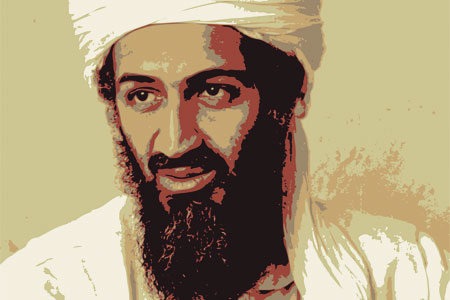
Still Out There, Still Relevant
Issue 73 October 2010
Nine years on, Osama bin Laden is still relevant to modern jihadism and catching him must remain a priority.
Nine years after the September 11 attacks on the United States and their architect is still at large. Osama bin Laden has never been caught; the combined might of American, British and NATO forces combing through one country have not even come close in almost a decade. They are still hunting in Afghanistan and along the Pakistani border, although no-one knows if they are looking in the right place.
It was always the case that capturing or killing bin Laden would not end the threat from Al-Qaeda, but the failure to catch him matters because of his role as a figurehead. The power of Al-Qaeda was always in its inspiration rather than in its number of adherents; even now, years later, with its top two commanders still at large and still issuing messages – bin Laden’s last message was released just a few months ago – its power to inspire other jihadi groups is potent. Capturing bin Laden won’t end the threat, but it may diminish the mystique.
Inspiration matters, but with the war in Afghanistan going badly, the CIA has moved away from trying to find bin Laden to focus on the leadership of the Taliban, and with some success. It is clear that what happens in Afghanistan is being dictated more by the Taliban than Al-Qaeda. The two are, in any case, incomparable: though they share tactics and their memberships overlap, the Taliban are a far more numerous movement - estimated at 30,000 or more - and far more deeply rooted in Afghan society.
Last month, a respected UK think-tank argued that the threat to Britain and the United States from the Taliban and Al-Qaeda was exaggerated and that the counter-terrorism strategy being pursued in Afghanistan was out of proportion to the threat. The International Institute for Strategic Studies argued that the idea that troops were needed on the ground in Afghanistan to keep the threat off the streets of London and New York was flawed. Instead of spending so much blood and treasure on a long-term engagement, less ambitious policy was needed.
Yet it is a mistake to marginalise the search for bin Laden. Capturing him remains an important part of the propaganda war - he has now outlasted two British prime ministers and one American president; there is little reason to believe he won’t outlast others. Al-Qaeda may no longer exist as a functioning organisation, but it continues to inspire others as a figurehead and through its tactics; large scale, simultaneous attacks on civilian targets have been embraced by terrorist plotters from Iraq to Indonesia.
But the real threat of Al-Qaeda remains in its inspiration. That is the only way in which speaking of “Al-Qaeda” makes sense today. In truth, there are dozens of “Al-Qaedas” around the world, groups that either profess allegiance to Al-Qaeda or draw inspiration from them. Most are autonomous, even focused on different goals to Al-Qaeda itself. But they still use the name and borrow the cachet.
When the Nigerian Umar Farouk Abdulmuttalab tried to detonate a bomb in the skies above Detroit, he did so in the name of Al-Qaeda, although there is no suggestion he ever set foot in Pakistan or Afghanistan. When Al-Shabab, a Somali Islamist group, claimed responsibility for a bombing in Uganda that killed civilians watching the World Cup, they did so after swearing allegiance to Al-Qaeda. Again, there is no suggestion of training in Pakistan or Afghanistan.
In August, two Spanish aid workers were released after months of captivity in Mali. The group that carried out the kidnapping – and others like it – calls itself Al-Qaeda in the Islamic Magreb.
Whatever role Al-Qaeda and Osama bin Laden had in these attacks was limited except as an inspiration. That in itself shows their enduring power. Even if the edifice of Al-Qaeda is collapsing, it is still important to find the men at the top. For too many people in too many countries still look up to them.
Faisal al Yafai is a journalist and a Churchill Fellow for 2009/2010. Click here to read more of Faisal's comment pieces for emel.
Bookmark this |
|
Add to DIGG |
|
Add to del.icio.us |
|
Stumble this |
|
Share on Facebook |
|
Share this |
|
Send to a Friend |
|
Link to this |
|
Printer Friendly |
|
Print in plain text |
|


Comments
1 Comment
1
Nora Kane
30 Oct 10, 20:09
Thank you Faisal.That was illuminating.
Blessings,
Noora.